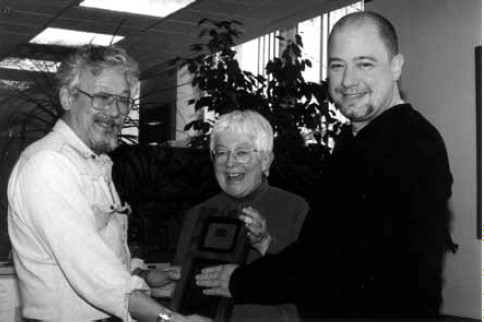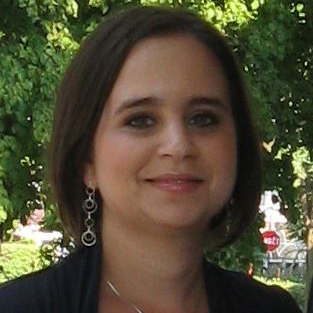
David Suzuki, Sheila Jones, and Chris Rose at the Honorary Fellow presentation. Photo © Lea-Anne Neuman
As part of the STC Canada West Coast chapter’s 40th anniversary celebrations, we’re recalling highlights from the chapter’s history.
The following article, written by STC Fellow and former chapter President Sheila Jones, appeared in the November/December 2001 edition of the chapter’s newsletter, Coast Lines.
David Suzuki: no ordinary fellow
— Sheila Jones
From his TV series The Nature of Things to the work of the foundation that bears his name, David Suzuki has long been deeply engaged in communicating one message: we are interconnected with the life of this planet and must find ways to protect and revitalize our basic life support systems: clean air, fresh water, fertile soil.
In 2001 the STC named him an Honorary Fellow — the highest honor the Society can bestow on a non-member. Suzuki was unable to attend the STC’s conference in Chicago because he was flying off to film Sacred Balance in the Arctic, so Chris Rose and I visited his offices to make the presentation. We talked briefly about the STC and the work our members do. “Communication is a lot of what we do, too,” said Suzuki, “and it’s really important. I’m glad an organization like the STC exists.” He told us about a recent major success in rescuing the Great Bear Rainforest: “It’s not official yet, but you’ll be reading about it soon.” [See “Ecoforestry Takes Root in BC,” The Georgia Straight, August 30 – September 6, 2001.]
The foundation has four aims:
- Research: to study the issues in depth.
- Education: to develop solutions-oriented books and reports that reach the widest possible audience through different media.
- Action: to use hands-on activities and multi-media forums to show that solutions are practical and attainable.
- Outreach: to encourage individuals to get personally involved.
Fundamental change starts with finding practical solutions to specific problems, and that’s where support staff and volunteers come in. Victor Vesely, Volunteer Coordinator, reports: “Volunteers play a key role. We have three writers on staff. A tremendous amount of information comes through the office: reports may be technical, on specific issues. Someone needs to be able to read through them, to synthesize them — staff don’t have time to do it all.”
Across the country, volunteers learn about issues via an electronic newsletter. “They can do research, publish success stories about local initiatives, or send letters to newspapers and magazines,” says Vesely. Still, the actual work takes place in Vancouver, including building databases to communicate with broad constituencies and working on newsletters and special events. “The Musqueam Watershed Restoration Project, was a treat!” said Vesely. Volunteers helped with restoration — planting trees, removing garbage — and they were involved in data gathering to document the biodiversity of the watershed.
The foundation is not government funded. Its success is based on the credibility of its findings, communicated in a reasonable, balanced way. “We realize that economic issues are involved.” says Vesely, “Jobs and costs are involved. But we hope to affect public opinion and change public policy.” This process allows people to analyse the facts and make their own decisions.
To learn more or volunteer, visit www.davidsuzuki.org.

Beverlee is a senior technical writer with experience in the software, mining, and e-learning industries. She has served in several volunteer positions with the STC Canada West Coast chapter, including secretary, treasurer, and student outreach coordinator.
